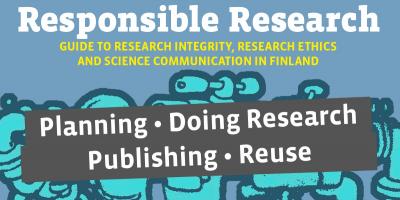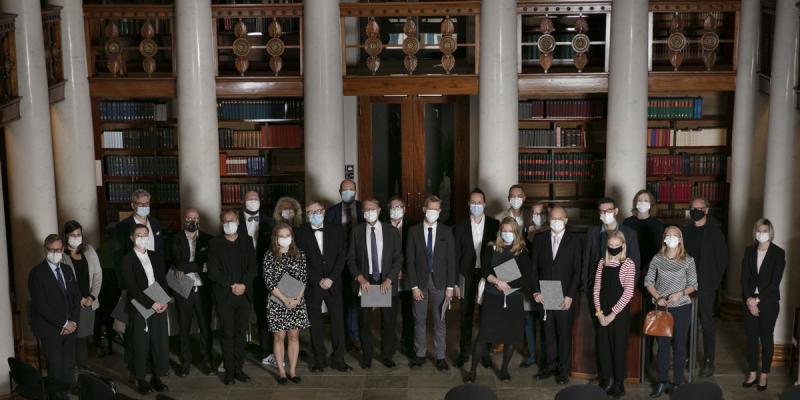Combining the open availability of data and data protection is a central challenge for archives in the coming years.
Modern archives are infrastructures serving multi-disciplinary research. Research use of digital materials is not bound to time or place.
Researchers are using less and less analogue materials, and the archives therefore change along with the research process and modify their services to meet the requirements of digital research. Machine learning is one of the most efficient ways to extract the maximum available benefits from materials.
Archive materials provide an overall picture of the Finnish society and its various actors in different times, a reliable and convincing one.
Archives as a part of responsible science
According to the Government Resolution of 3 March 2011, the reuse and accessibility of publicly funded information resources should be promoted. Accessibility also implies that any materials containing personal data subject to limitations of use or other confidential information are provided for use through strongly secured online services. The researcher or other party needing the information agrees to use the data for the purpose they have indicated.
Archives change along with the research process and modify their services to meet the requirements of digital research.
The activities of researchers are also governed by the Responsible conduct of research (RCR) guidelines of the Finnish National Board on Research Integrity. The National Archives of Finland have also committed to following these guidelines.
The Education and Culture Committee of the Parliament of Finland stated in 2016 that bringing the descriptive data of archived materials to online services substantially improves the accessibility and usability of materials produced and collected with public funding. Archived materials containing personal data or other data subject to limitations of use should also serve the information needs of researchers, the authorities and the public in an appropriate manner.
In May 2018, the European Commission published the communication “Towards a common European data space”. Its purpose is to boost European competitiveness and innovation by opening public and private data for open use.
This outline requires international interoperability from our solutions. Successful implementation, however, substantially increases the reliability of public data available for use by researchers and decision-makers, thereby further enforcing the societal effectiveness of archives.
Reliability of archive materials
A large part of the data records of public administration consists of registers, many of which are personal registers. This creates special requirements for the use of such registers in research, and this, in turn, has an effect on the implementation of digital services.
The possibility to combine various registers in order to generate new information is central in research use. Merging the European communication on a common European data space with the general data protection regulation into a controlled course of action is a central challenge in the coming years.
A researcher must be able to rely on the integrity and stability of the materials they use.
Register data and other materials containing personal data are archived in a manner that allows the safe merging of data. Merged data is provided to researchers either as pseudonymised data or sometimes even in an anonymised format so that the information concerning a specific person is not revealed.
Personal data cannot be removed from the archived materials, because the materials must be kept unaltered and the scientific or legal validity of records may not be compromised. A researcher must be able to rely on the integrity and stability of the materials they use. The requirement of reliability also concerns the archiving of materials containing personal data in order to ensure the legal protection of an individual citizen.
Päivi Happonen is a docent and the Research Director of The National Archives of Finland.
Further information:
Towards a common European data space: https://eur-lex.europa.eu/legal-content/en/TXT/?uri=CELEX%3A52018DC0232
You might also be interested in
Tämä teos on lisensoitu Creative Commons Nimeä 4.0 Kansainvälinen -lisenssillä. Detta verk är licensierat under en Creative Commons Erkännande 4.0 Licens. This work is licensed under a Creative Commons Attribution 4.0 International license.


